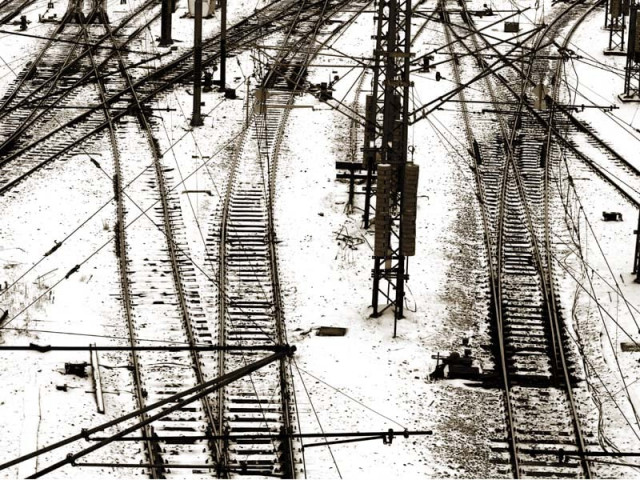Pakistan Railways: White elephant on life-support
2011 marked the Railways’ 150th anniversary, but there’s nothing left to celebrate.

Pakistan Railways: White elephant on life-support
The year 2011 was supposed to be a milestone for Pakistan Railways – it would’ve marked the institution’s 150th anniversary. But with more than half of its locomotives suspended almost throughout the year, suspension of freight operations and a host of scandals, the year was anything but celebratory.
The entity stayed in limelight, not least for its minister, Ghulam Ahmad Bilour’s frequent warnings to shut it down.
Waiting for a bailout
The corporation, for almost the entire year, waited for a requested bailout package of Rs11.1 billion approved by the government. Railways authorities planned to use the funds for rehabilitating some 148 locomotives and purchase new ones.
The finance ministry asked railways authorities, a number of times, to prepare PC-1 for the bailout package but was hesitant to release the funds, mainly due to the fear that they would be squandered. The two ministers also exchanged harsh words on the issue - Bilour often blamed the finance minister for using delaying tactics.
Eventually, in December 2011, Railways was given Rs4 billion from the Public Sector Development Program to be used for rehabilitation of some locomotives. Banks and other financial institutions, meanwhile, have refused to provide loans to the organisation.
Mounting liabilities
Chronic debt and mounting liabilities plagued the entity throughout 2011. Railways owed billions of rupees to fuel suppliers and other service providers, and faced frequent disconnections. For the first time in the corporation’s history, Pakistan Railways had to purchase diesel from open market to keep its trains on track after Pakistan State Oil refused to provide diesel. Till December 26, 2001, railways owed Rs1.2 billion to PSO.
Service suspension
As engines fell out of order, Railways halt its freight operations midway through the year, in order to keep passenger trains on the track. That didn’t help though – not only did the entity suffer heavy losses (freight operations are far more profitable than passenger service) but service suspensions continued. Later, passenger trains on short junctions were suspended in favour of express trains. Service levels, meanwhile, continued to plummet – late arrival and departures, engine failures and cancellation of trains at eleventh hour became the norm.
Freight operations were finally resumed two days before the year ended.
Fiscal situation
The entity had set a revenue target of Rs9.04 billion for the first six months of 2011-12, but managed to earn Rs6.23 billion only. Of that, it spent Rs0.9 billion on salaries of its 84,912 employees and over Rs1.1 billion on pension payments to 123,000 retired workers. The entity needs Rs2.3 billion per month to meet its salaries, pension and other expenses.
Strikes, protests
2011 was also the year of strikes and protests, either by different labour unions against planned privatization, or by railway workers against delay in salaries.
Railway pensioners also joined in protests as paucity of funds also halted pension payments. A pensioner died in queue, while waiting to collect his long-delayed pension.
When the organisation was unable to pay salaries, Railways’ employees jammed the network, forcing the president to step in and ask the finance ministry to inject Rs2 billion for salary and pension payments.
Mismanagement, scams
Two general managers for operations were sacked in the year, and both failed to put the trains back on track. Several scandals also emerged during the year – stealing of cooper wires, radiators, and a whole freight coach full of copper were stories that bedeviled the organisation’s reputation.
Published in The Express Tribune, January 1st, 2012.



















COMMENTS
Comments are moderated and generally will be posted if they are on-topic and not abusive.
For more information, please see our Comments FAQ